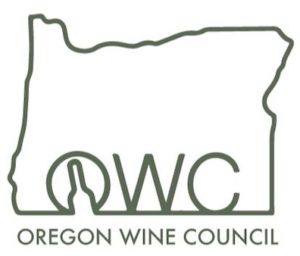An Oregon Wine Rebellion Reflects a Maturing Industry
 Something strange happened on the way to passing wine legislation in Oregon…a rebellion broke out.
Something strange happened on the way to passing wine legislation in Oregon…a rebellion broke out.
Announced five days ago was the formation of a new Oregon wine trade association: The Oregon Wine Council (OWC)
According to the Council’s press release:
“The Oregon Wine Council (OWC) has formed with a board of directors and members representing the wine industry statewide. Forming from the coalition who defended the wine industry from anti-competitive wine legislation during the 2019 Oregon Legislature, the OWC represents growers, producers and businesses supporting the wine industry and is focused on uniting the wine industry and speaking with one voice….During the 2019 Oregon Legislative session bills were introduced about wine labeling, fruit sales outside Oregon, purity standards and creating new licensure laws. SB111, sponsored by the Oregon Winegrowers Association (OWA) was the catalyst for opposition. The coalition that defeated SB111 is now the OWC. OWC’s membership believes the OWA has not represented our best interests, nor the interests of the statewide wine industry.”
That’s not too subtle.
However, the fact is that the coalition of growers and wineries that seemingly broke away from the Oregon Winegrowers Association to form the Oregon Wine Council is the same coalition of mainly southern Oregon growers and wineries that successfully defeated Oregon Senate Bill 111 earlier this year. SB 111 would have made changes to the way grapes wee sold that members of the new Oregon Wine Council saw as extremely anti-competitive and impacting the southern Oregon wine industry in a much more significant way than the northern (read: Willamette Valley) part of the industry.
Make no doubt about it, both the Oregon Winegrowers Association and the new Oregon Wine Council claim to represent the entirely of the Oregon wine industry. This is somewhat awkward. The new OWC doesn’t consider its founding to be a “split” from the OWA, but rather an “opportunity to take on a leadership role and drive the industry forward,” as Scott Kelley of Paul O’Brien Winery explained on a recent podcast from KQEN.
I want to emphasize how unusual it is for a new and/or competing organization to pop up in the wine industry. It almost never happens when it comes to regional AVA associations and it is also rare when you talk about industry or state-wide organizations. Back in the 1990s, we saw the founding of Family Winemakers of California, which was formed after a number of prominent and not-so prominent wineries became disenchanted with how the state-wide California Wine Insitute was addressing new issues like direct-to-consumer shipping and attacks by neo-Prohibitionists. A similar split occurred in Washington State with the emergence of Familly Winemakers of Washington. However, the effort to convince a statewide industry to join the upstart association is not an easy one. OWC is going to have a bit of work on its hands.
Although increasing support for the OWC via increased membership is certainly an important goal of the OWC at the moment, Elin Miller, an OWC Board member and owner of Umpqua Vineyards, told me in an interview that the first goal of the organization is to “put into place an equitable dues and governing structure to place the organization on a sound footing.” Attracting a large and regionally diverse membership will come next.
However, Miller also explained that from a political agenda perspective, the new OWC is set “to oppose any and all new wine-related legislation in the coming 2020 legislative session.” In fact, they’ve reached out to the OWA asking that coalition of wineries and growers to support this legislative pause on the part of the Oregon wine industry in order to take stock of the current regulatory and industry environment before moving forward with any new initiatives, particularly after the busy and tumultuous 2019 legislative session. So far OWA has not agreed on this issue.
In a way, it is not surprising that a new statewide wine trade organization has popped up at this moment. The Oregon wine industry finds itself at an important point in its development. The older leadership guard, which includes many of the icons and founders of the state’s wine industry, are retiring and, well, getting older, while at the same time a new generation of leaders are emerging to oversee and perhaps alter the landscape the founders created. A quickly developing wine industry in the southern part of the state is drawing a great deal more attention and it is doing so not entirely on the back of Pinot Noir, which put the state on the wine map to begin with and still attracts the attention of the wine world. The needs of this newer South Oregon wine industry are in large part what helped create the split in the industry over the SB 111 legislation earlier in the year.
One thing you quickly realize when you come to this state, start observing its wine industry and start interacting with it is that it is a highly collegial tribe of people, yet at the same time somewhat isolated both geographically as well as ideologically from the rest of the Amerian wine industry. Oregon wine finds itself today in the big leagues of the worldwide wine trade. This newer positioning is going to cause various splits, differences of opinion and different approaches to governing a very dynamic industry. The Oregon Wine Council thinks it is time to rejigger the way the industry is governed and who does the representing.

Leave a Reply